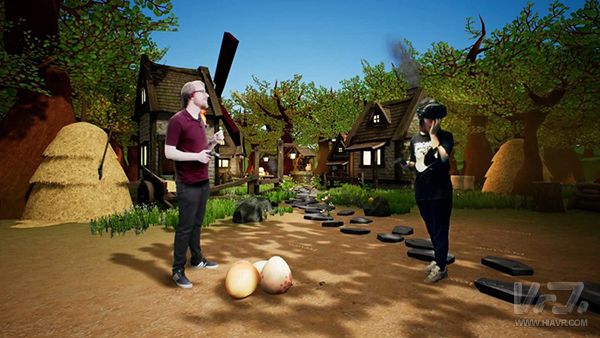MRC, a Canadian education service company based in Ottawa, has recently partnered with River Valley Technology, a Beijing-based firm, to integrate its services into an innovative English learning program. This initiative aims to revolutionize traditional distance education by offering Chinese students the opportunity to engage in real-time, face-to-face communication with tutors in authentic English-speaking environments. The program is designed to be scalable and adaptable, eventually replacing conventional classroom settings with a more dynamic and sustainable learning experience. Powered by mixed reality and IP video technology, this new program redistributes global educational resources to meet the diverse needs of students worldwide. It also enables local institutions to offer internationalized education. For instance, a student in a remote area can have an immersive English conversation with a tutor from Canada, all within a 360° virtual or augmented reality environment. Students can choose to practice their language skills in iconic global locations like the Eiffel Tower, the Colosseum, or the Egyptian pyramids, making learning both engaging and imaginative. These richly designed scenarios cater to learners of all ages, encouraging interactive and meaningful conversations that go beyond textbook learning. While traditional classrooms still hold value, the MR curriculum offers a unique advantage: it allows students to apply their knowledge in realistic, real-world contexts. Through one-on-one instruction, tutors guide students through virtual environments, providing them with practical topics for discussion. This not only enhances language skills but also develops body language and emotional expression—key elements in natural and social communication. Mixed Reality technology breaks down geographical barriers, enabling meaningful exchanges between students and mentors regardless of location. This fosters efficient and personalized learning experiences that are both flexible and effective. This innovative shared teaching model is expected to strengthen the educational and socio-economic collaboration between China and Canada. As both nations continue to deepen their partnership, such technological advancements will play a crucial role in shaping the future of global education. At the recent 19th National Congress, experts predicted that by 2035, China will have achieved significant modernization, positioning itself as a global leader. With over 350 million people in the middle class expected in the next decade, demand for high-quality education will surge, further driving the growth of this new learning model. Earlier this year, Canadian Prime Minister Justin Trudeau visited China, where leaders from both countries reaffirmed their commitment to deepening cooperation in education and other key areas. Their discussions highlighted the importance of strengthening Sino-Canadian relations to support economic and social development. In this evolving landscape, we anticipate even more advanced collaborations between the two countries, including enhanced use of VR and AR technologies in education and beyond. This article is written by VR Net. Please credit VR Net and provide a backlink if you share it. Google Stylus Pen,Chromebook Stylus,Chromebook Active Pen,USI Touch Stylus Pen,USI2.0 Stylus Pen Shenzhen Ruidian Technology CO., Ltd , https://www.wisonen.com